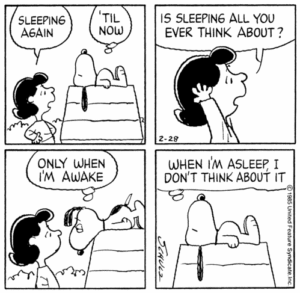Are you tired today?
You’re not alone, 63% of all Americans report that their sleeping needs are not being met. How many accidents on construction projects are the result of poor cognitive function caused by sleep deprivation, yet are never reported as such? Sleep deprivation may disturb brain cells and trigger temporary mental lapses that affect memory and visual perception, according to a recent study from researchers at the University of California, Los Angeles. The researchers analyzed 12 patients with epilepsy who were preparing to undergo surgery. By implanting electrodes in patients’ brains, the researchers could find the source of their seizures. Participants remained awake all night prior to surgery because a lack of sleep can prompt epileptic episodes. The patients were asked to categorize a variety of images as quickly as possible while electrodes measured their brain cell activity during their responses. Researchers found that the subjects brain cells fired slower as the patients grew more tired which put more stress on the function of the temporal lobe, which controls memory and visual perception.
“We discovered that starving the body of sleep also robs neurons of the ability to function properly,”
“We discovered that starving the body of sleep also robs neurons of the ability to function properly,” Dr. Itzhak Fried, the study’s senior author and a professor of neurosurgery at the David Geffen School of Medicine at UCLA and Tel Aviv University, said in a Nov. 6 press release. “This leads to cognitive lapses in how we perceive and react to the world around us.”
 The researchers found that sleep deprivation affected the brain in ways that were very similar to alcohol intoxication.
The researchers found that sleep deprivation affected the brain in ways that were very similar to alcohol intoxication.
“We were fascinated to observe how sleep deprivation dampened brain cell activity,” lead author Yuval Nir, of Tel Aviv University, said in the release. “Unlike the usual rapid reaction, the neurons responded slowly and fired more weakly, and their transmissions dragged on longer than usual.”
In an article by EHS Today, they listed the top ten dangers of sleep deprivation to workers as:
- Decreased communication
- Performance deteriorates
- Increased risk of becoming distracted
- Driving impairments
- Increased number of errors
- Poor cognitive assimilation and memory
- Poor mood appropriate behavior
- Greater risk-taking behavior
- Inability to make necessary adjustments
- Effects of sleep deprivation compound across nights
The National Sleep Foundation suggests adults get seven to nine hours of sleep a night.
The study was published online Nov. 6 in the journal Nature Medicine.
Get your sleep, it’s a safety thing!

 The researchers found that sleep deprivation affected the brain in ways that were very similar to alcohol intoxication.
The researchers found that sleep deprivation affected the brain in ways that were very similar to alcohol intoxication.


